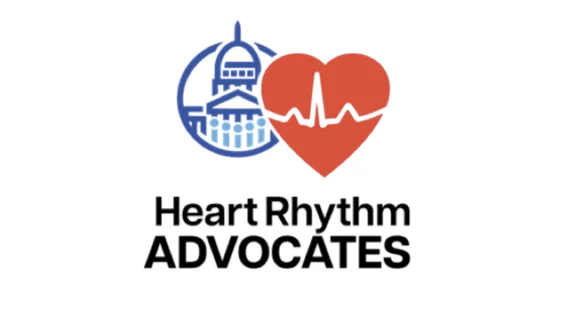Heart Rhythm Society legislative advocacy group raising funds for electrophysiology
The Heart Rhythm Society (HRS) has established is own legislative advocacy group Heart Rhythm Advocates (HRA), which has begun operations in Washington, D.C., and is raising money for political activities.
HRA will focus on advocating for the care of patients with heart rhythm disorders and the healthcare professionals that serve them. As a 501(c)(6), HRA is able to raise and spend money on political activities to help address the issues that impact electrophysiology (EP) physicians and their patients.
“For over 45 years, HRS has supported the electrophysiology community, but there’s a limit to what we can do as a nonprofit,” explained HRS President Kenneth A. Ellenbogen, MD, director of clinical cardiac EP and pacing with Virginia Commonwealth University. "We're going with a unified electrophysiology community with the old basketball saying from Coach K from Duke, 'a fist is more powerful than a finger.' So we hope we get the EP community mobilized and people pay attention to this and realize the time to have a fight is not when the cuts are on the table, but to explain to people how important and how complex are the things we do."
EP struggles with Medicare reimbursement cuts
Ellenbogen unveiled the initiative last November, highlighting its goal to address policy challenges to ensure fair reimbursement and advocate for equitable patient care and access. The move was prompted by major concerns in EP over drastic Medicare and Medicaid Services (CMS) cuts to EP physicians between 2023-2024, with cuts up to 40% for some of the primary main procedures, while increasing payments for the same procedures for hospitals.
Many leaders in EP say these cuts to physicians are making the subspecialty very unattractive to new cardiologists who need to payback major loans for what ends up being the longest training period of any cardiac subspecialty. Ellenbogen and other former HRS presidents have said this jeopardizes the future of EP and the ability to provide adequate access of EP care to patients.
As Medicare continues to make cuts, access may also be limited to only those patients who can pay for EP services out of pocket, due to costs no longer being fully covered by CMS payments. This may prompt some providers to turn away Medicare patients.
These are the key factors for why HRS is now calling for direct political lobby efforts to influence or change payment policies. HRS members have argued that the complexity and science involved in electrophysiology is not easily conveyed by outsiders. They said clearly Congress does not understand the costs and training involved to be a EP physician, or they would not have cut reimbursement so drastically the past couple years.
HRA raising money for EP
This week, HRA announced its establishment and called on cardiologists and EPs to support its efforts with membership. It has an introductory offer to become a member for $100 per year.
HRA said the money will fund efforts to address issues such as:
• Continued research funding for EP innovations
• Ensuring patients have access to EP physicians
• Fair reimbursement for EP procedures
To become an HRA member, HRS members can log into their HRS profile, click "Heart Rhythm Advocates" from the left-hand side navigation, and check the "Become a Member" box.
EPs can help shape the future of advocacy
HRA is also accepting applications from EPs for five committees, each dedicated to a different area of HRA’s mission. These include newly formed committees for fundraising, membership, communications, legislative affairs, and science and research advocacy. The application deadline is April 17, 2025. Access the application form.
For more information, or to follow HRA developments at HeartRhythmAdvocates.org.
Watch a video interview with Ellenbogen on why HRS created this advocacy group — Why electrophysiologists needed a champion in Washington.

